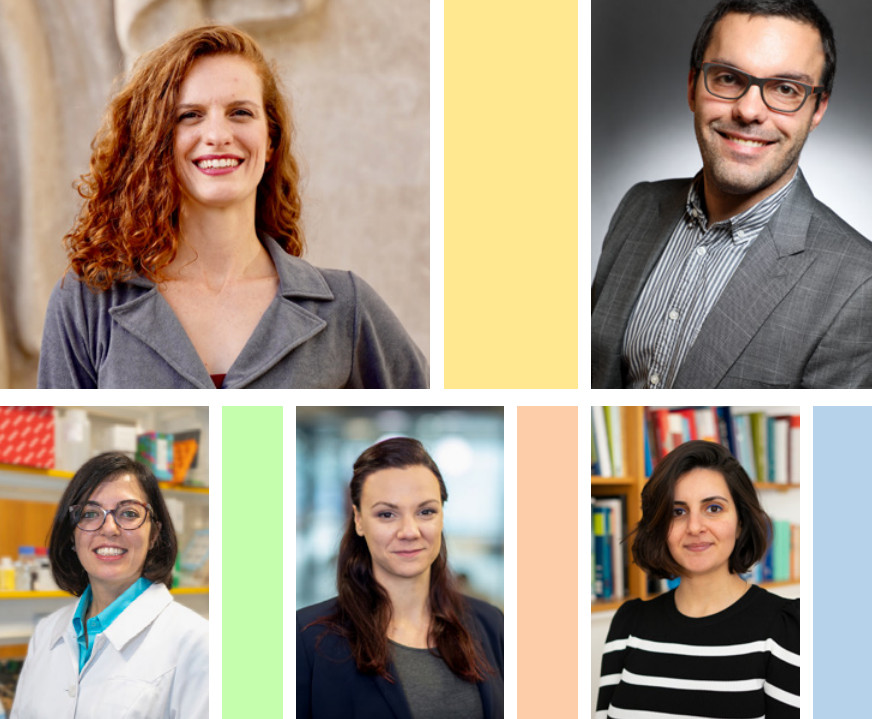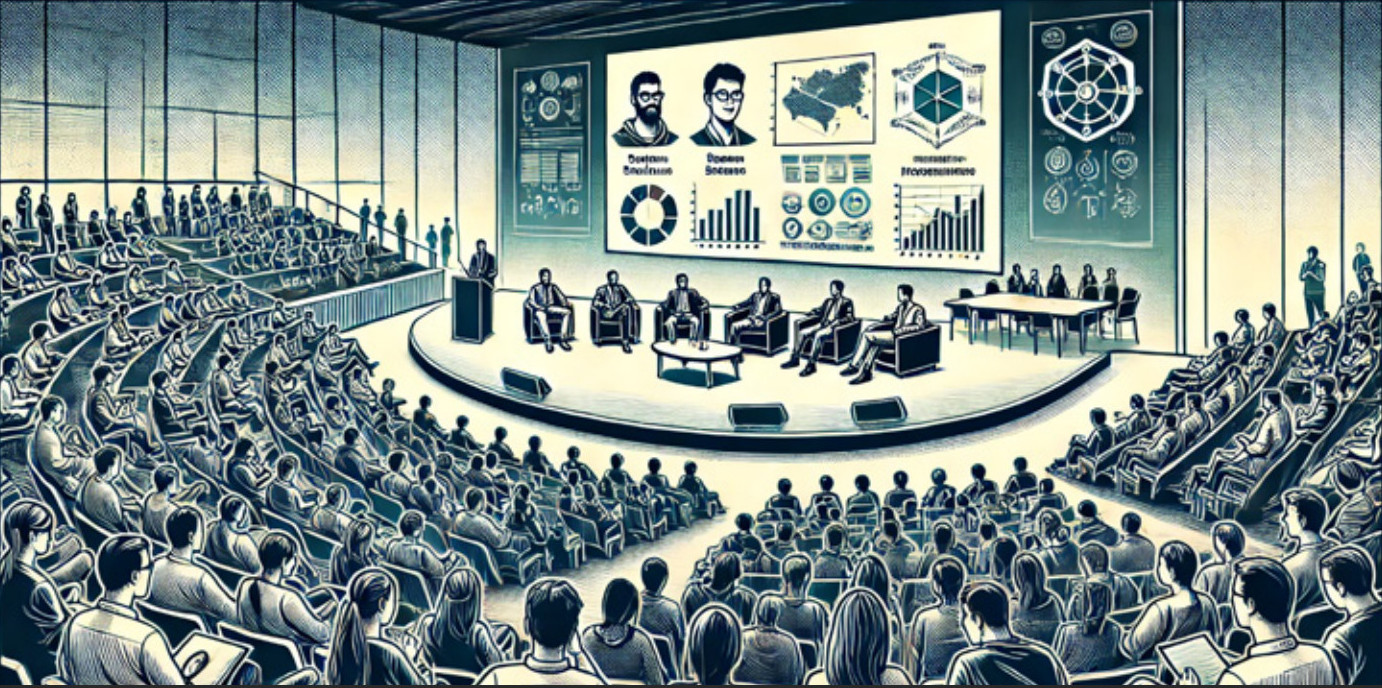News from the MCAA - Careers after PhD thesis in STEM
Newsletter
Do you have many questions about your career development after finishing your thesis? How to spend the invaluable scientific and transferable skills you have acquired? Do you want to work in a different domain than your doctoral field? Don't panic: many members of our chapter have asked themselves the same questions before this panel discussion.
Bionote
Giulia Rizzo specializes in energy solutions for medical implantable devices. She is currently a postdoctoral researcher at INSERM, where she works on biomedical ultrasounds to wirelessly charge medical implants. Giulia was an MSCA PhD researcher in an ITN project. She developed her thesis in Paris, France, between the French company Valotec and at the laboratory C2N.
Alberto Gregori embarked on his career in the European Union's research landscape immediately after graduating. Throughout his career, he has contributed to numerous MSCA projects, taking on roles such as PhD researcher, post-doctoral fellow, project manager, and partner leader. His work has focused on specialty polymers and optoelectronic devices for applications in energy, healthcare, and electronics. Currently, he works as a consultant, specializing in EU grants proposal writing and management. In his personal life, Alberto enjoys traveling, cooking, and embracing new experiences.
To answer all of these questions, the MCAA France Chapter, with the collaboration of Maison de l’Ile-de-France of Paris, has organized the conference “Careers after PhD thesis in STEM.” It was an excellent opportunity to discuss with ex-MSCA fellows about their career developments and the applications of their skills to the job world.
The conference took place on 31 January at the Cité Internationale Universitaire de Paris. This campus, located in the south of Paris, hosts Erasmus students, PhD and postdoctoral fellows every year. It is a good environment for international students and researchers who want to move to Paris.
In this environment, five speakers were invited to the stage to talk about their experiences after their scientific thesis.
Beatrice Adelizzi is currently the project leader at DNA Script, a growing French startup. She previously lived in the Netherlands, where she completed her PhD in functional supramolecular materials. She then moved to Paris for her postdoc, supported by an MSCA individual fellowship. After completing her postdoc, she joined DNA Script's Advanced Research group as a surface chemist. Since June 2022, she has been leading the inkjet synthesis team.
Throughout her career, Adelizzi has actively studied the job market and refined her skills based on market needs and her career objectives. Her advice to the audience is to explore job opportunities during their thesis and postdoc periods, rather than waiting until the end. Building the right expertise requires time and strategic planning, which is essential for pursuing a career in the R&D industrial environment.
Camila Betterelli Giuliano transitioned from working at a large international company, IBM, to a French small-medium enterprise (SME), the Microfluidics Innovation Center.

Her career has consistently focused on industrial applications. She completed her PhD at the French company Elvesys, supported by an MSCA fellowship. Currently, her role involves bridging the gap between the market and engineers, ensuring researchers have the right instruments for cutting-edge science. Her advice to the audience is to learn how to effectively "sell" their career path by presenting their skills and experiences in the best possible light.
Alberto Gregori has a background in material science and polymer chemistry. He completed his MSCA PhD thesis in France and subsequently conducted his postdoctoral project at Siemens Healthcare as part of a MSCA Innovative Training Network (ITN). He honed his R&D management skills at research centers such as the Italian Institute of Technology (IIT). Recently, he joined FI Group to support researchers and companies in writing grant proposals and managing large EU projects. His advice to the audience is to always be themselves and to be kind and friendly to others. A successful career is built on both expertise and, more importantly, human connections.
Dureen Samandar Eweis decided to embrace a career in science policy. After an MSCA doctoral thesis in biology at the French Curie Institute, she did the European bluebook training in Brussels. After this experience, she converted her passion for science policy into her job, becoming a Science Officer at the International Science Council (ISC). Nowadays, she is part of the Centre for Science Futures, a new think tank of the ISC. In her case, she found an inspiring mentor and she had the opportunity to join his team.
Piera Smeriglio has lived between Italy, France, and the USA. She specialized in myology during her PhD. Then she moved to Stanford University for her post-doctorate to learn more about epigenetics. She won an MSCA individual fellowship in Paris, and, after 2 years of MSCA postdoc, she was appointed team leader in the Center of Research in Myology in Paris and landed a permanent INSERM position as a confirmed researcher. She advised the audience to focus on the scientific connections during the thesis. The best occasion for networking could be the laboratory or at conferences.
These examples of ex-MSCA fellows demonstrate the versatility and breadth of options available to post-PhD researchers, whether in academia, industry R&D, management, or science policy. The key takeaway from their experiences is the importance of adaptability, continuous learning, and seizing networking opportunities. A MSCA fellowship not only provides a strong scientific knowledge, but also opens doors to valuable networking and mentoring within the European research community. As attendees reflect on these insights, the path after a PhD is diverse and full of possibilities. The MCAA France Chapter, in collaboration with Maison de l’Ilede-France of Paris, hopes that this conference has inspired and provided practical advice for those navigating their careers after completing their PhDs. Through such events and the support of organizations like MCAA, researchers can find their unique paths to success in the dynamic landscape of STEM careers.
Giulia Rizzo
Postdoctoral researcher at INSERM
Chair of MCAA France Chapter
giuliarizzo1992@gmail.com
Alberto Gregori
Senior EU Grants Consultant at FI Group
Communication Manager of MCAA France Chapter
gregori.alberto@gmail.com
